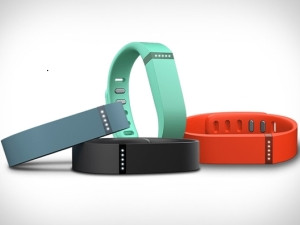
New technologies that go beyond simply treating patients can enhance traditional healthcare systems, says Neil Adamson, development manager at Discovery Health and Vitality International.
On this note, Discovery Health and Vitality International, a benefit product within Discovery's health insurance stable, are partnering with health device manufacturers such as Fitbit, Fitbug and Garmin to enter the wellness tracking device market.
According to Adamson, the rapid growth of this market, coupled with partnership models, demands that healthcare systems be re-worked. The extent of device proliferation, for products such as the Fitbit Flex, indicates that these devices are reasonably priced and that there is a large customer pool. But as yet, there is no market leader in this space, he noted.
Speaking at Open Group SA's Enterprise Architecture Practitioners' Conference last week, Adamson outlined how this technology and partnerships will enable Discovery's drive for global collection and delivery of wellness data, while maintaining real-time interactions with clients. This comes after it introduced mobile apps for customers to access information on Discovery products.
The partnership entails Discovery collecting real-time wellness data from device manufacturers. The data is then verified by Discovery, with unusable data eliminated and the remaining data transformed and saved according to the health insurer's standard formats. It is then sent to healthcare institutions and medical practitioners where Discovery members are likely to be treated.
Data collected on the devices include the user's heart rate, number of steps taken, calories burned and distance walked. Some even track the user's location and activities, or lack thereof.
"This means we have data of what factors could directly affect the user's health," Adamson noted.
"Making this data available will help minimise problems such as wrong diagnoses, enable quicker turnaround in treatment time, and enable us to get an overall sense of each region's health and wellbeing. The quick and real-time technology also minimises the time it takes to make health and benefits decisions."
He acknowledged that there are still challenges. With the process of designing and rolling out the devices still in its early phase, devices' accuracy and effectiveness remain a work in progress, he explained. In some instances, members can easily cheat the devices. By shaking them, for example, the feedback can register the member as having exercised, and will therefore award points to them, he added.
"We also can't roll out the devices in a single, one-system-fits-all way. This results in no consistent approach to device integration, either at device level or country level. It also leads to an inconsistent approach to data collection across devices and regions, as well as inconsistent user experience," he noted.
While the general public can purchase the devices directly from device manufacturers to track their own personal data, Discovery and its partners employ an outcome-linked incentives system for Discovery members. These include discounted rates on the purchase of the device, waived courier charges that may apply for delivery, as well as points allocation for the amount of activity data uploaded.
Discovery Health and Vitality International will roll out partner devices in the five countries the health insurer operates in, including SA, as well as in newly established markets in the Asia-Pacific region, where it will be exposed to a population exceeding two billion people.
Share